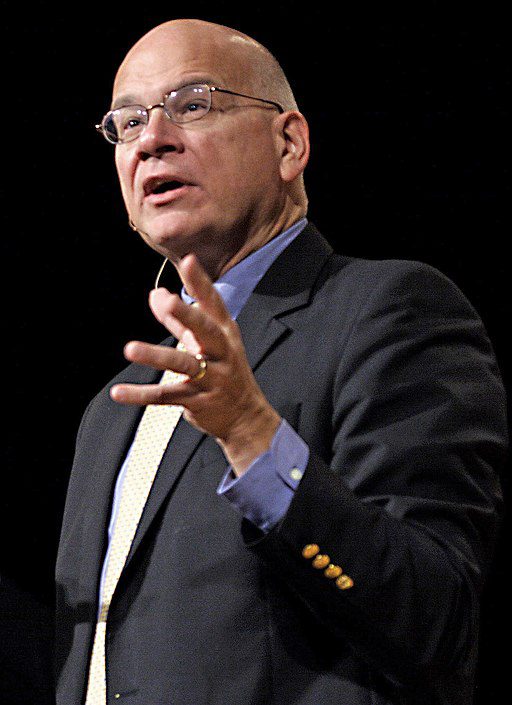Tim Keller, the former pastor of Redeemer Presbyterian Church in Manhattan who brought the Gospel to thousands of sophisticated New Yorkers and thoughtful readers, has died.
The tributes keep pouring in. Here is a good one from Marvin Olasky. I was most struck by my fellow Patheos blogger Daniel K. Williams, who recounted how Tim Keller kept him from losing his faith.
In his post The Secret of Tim Keller’s Christian Apologetics, he says,
I think that Keller’s effectiveness as an apologist stemmed largely from his ability to combine four very different approaches to apologetics—the classic evidentialist approach, the narrative apologetics of C. S. Lewis, the presuppositionalism of Cornelius Van Til, and the psychological insights of Jonathan Edwards— and translate those approaches into an idiom that answered the questions of a 21st-century college-educated urban professional. Most Christian apologists have mastered only one of these approaches, but Keller was unique in synthesizing all of them in a way that seemed fresh and compelling.
Williams cites Keller’s bestselling book The Reason for God: Belief in an Age of Skepticism, which, he says, is outstanding. And yet all of the good arguments left him strangely unmoved. What got through to him was another of Keller’s books, The Prodigal God: Recovering the Heart of the Christian Faith, which uses what Williams calls a psychological approach derived from the 17th century American Puritan Jonathan Edwards.
Here is how Williams describes what happened:
Keller’s The Prodigal God showed me who I really was in a way that I had never seen before. At the time I read this book, I had spent my entire life as someone whom Keller described as the “elder brother” of Jesus’s parable of the prodigal son in Luke 15. . . .
Elder brothers, Keller argued, are self-righteous, religiously observant people who find refuge in their own goodness but who don’t really love the Father. They often “have an undercurrent of anger toward life circumstances, hold grudges long and bitterly, look down at people of other races, religions and lifestyles, experience life as a joyless, crushing drudgery, have little intimacy and joy in their prayer lives, and have a deep insecurity that makes them overly sensitive to criticism and rejection yet fierce and merciless in condemning others” (The Prodigal God, 70-71).
What elder brothers need is the freedom that comes from loving the Father and feeling his acceptance. Their good works are really a way for them to distance themselves from God, because they think that if they’re good, they won’t really need God’s salvation. They therefore need to repent of the motivations even for their good works, because in doing good, they weren’t really loving God – in fact, they were doing the opposite. . . .
I recognized myself in that picture. . . .I had thought of sin merely as violations of God’s commands – and by that standard, I thought (incorrectly, of course) that my need of a Savior was only moderate. . . .My whole life had been deeply sinful, because the good works and squeaky-clean moral living had been motivated by something very different from real love for God and desire for his glory and his grace.
Then Williams “realized my need for a Savior in a new way” and – and “came to believe the gospel in a way that I never had before.” Whereupon he saw Scripture–even the “problem passages”–in a new way. He saw the historic and scientific objections that he had in a new light. Now Keller’s evidentialist and narrative apologetics, especially regarding Christ’s resurrection, became more convincing. But first he had to realize the extent of his sin and the extent of Christ’s salvation.
Williams credits Jonathan Edward’s Reformed theology, which Keller shared, for this. But, as a Lutheran, this sounds like nothing more than the distinction between Law and Gospel. The former is necessary to convict us of sin, to show even self-righteous “elder brothers” that they are sinners, so that, broken, we can be open to the message of Christ’s redemption and His forgiveness.
I know that the Reformed can preach this way too, as Keller did, recognizing that conversion is not just intellectual assent or “making a decision,” but rather the birth of faith that comes from hearing God’s Word of both condemnation and grace.
What Williams describes is not just apologetics but evangelism. Interestingly, he says, after the evangelism the apologetics made sense. Many of us do need to grasp the reasons for the hope that is in us (1 Peter 3:15), so apologetics is important. But, since God is no mere abstract idea and since we are not disembodied intelligences but sinners in need of grace, apologetics needs to either begin or end in evangelism.
Photo: Rev. Timothy Keller by Frank Licorice, CC BY-SA 2.0 <https://creativecommons.org/licenses/by-sa/2.0>, via Wikimedia Commons













